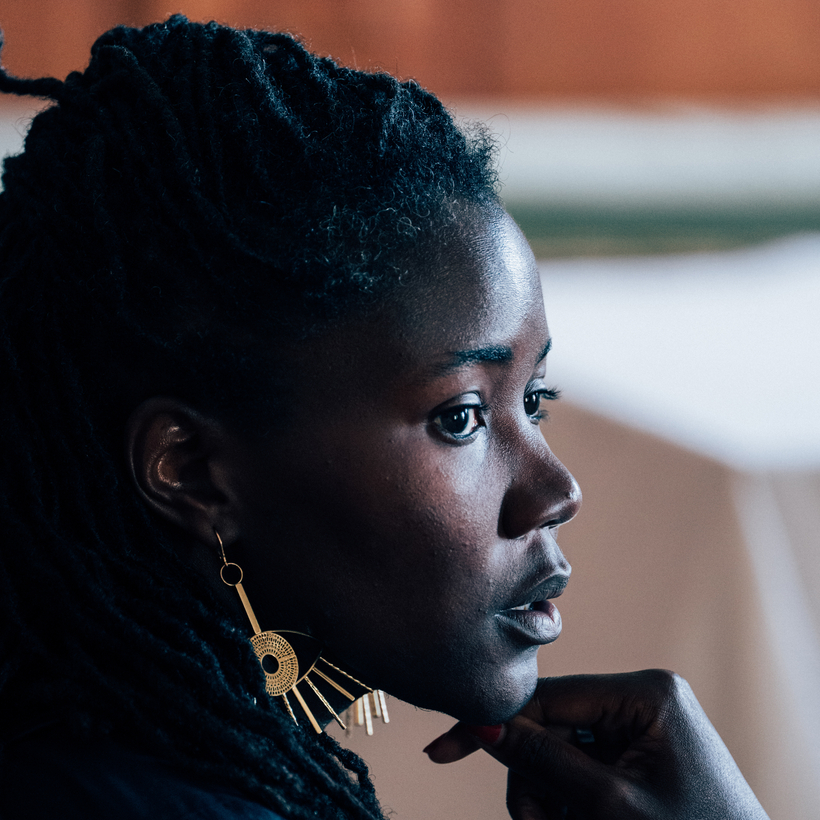In 2013, the case of Senegalese-born Fabienne Kabou shocked France. The 39-year-old graduate student went on trial for leaving her baby daughter to perish on a beach. She blamed witchcraft but also seemed genuinely baffled by what she had done.
Kabou’s story is the inspiration for Alice Diop’s mesmerizing new drama, Saint Omer, France’s critically acclaimed candidate for the Academy Award for best international feature film. Rather than rubberneck at Kabou’s unthinkable act, Diop crafted a cri de coeur about motherhood and race, leaping to the top ranks of French auteurs with her first fiction feature.

Saint Omer, in theaters now, is partly based on Diop’s own experience—the filmmaker, 44, compulsively attended Kabou’s trial. In the film, we join a novelist named Rama (Kayije Kagame) as she attends the trial of Laurence Coly (Guslagie Malanda), the character inspired by Kabou. The film is largely a courtroom drama, but the point isn’t the usual question-and-answer march toward a verdict—this is an intensely emotional journey. “Looking at this woman and being positioned next to her leads us to ask questions about ourselves as we listen, stupefied and stunned,” says Diop, a commandingly forthright speaker herself who won a top prize at the Venice Film Festival for Saint Omer.
Through Rama’s eyes we develop sympathy for Coly, who clearly suffers from some form of depression after her traumas. But that understanding only deepens as we hear about the racist slights she faced as a Black immigrant in France, as she was not taken seriously as a student, and was infantilized by the white father of her child. All of this we hear about; Diop avoids re-enactments. “I didn’t want to film the crime. I didn’t think that that would be interesting at all,” she says. “I think that having this woman’s language be heard was the driving force of my desire to make the film.”

Malanda, an art curator by profession, holds the camera’s gaze with a heavy heart whenever she’s on the stand. She looks like the enigmatic subject of a classical portrait, and that’s no accident. “In the history of painting, Black women have been marginalized,” says Diop. “And so to put a Black woman in the center of the frame was a decision that had political importance.” Saint Omer also delves into Rama’s life through flashbacks to scenes with her Senegalese family, caught between the push and pull of tradition and independence.
By the end of the film, Coly comes to represent all that is overwhelming and unnamable about the burdens of motherhood. And the film strikes a nerve. “Q&A sessions tend to turn into therapy sessions. After the screening, women come to tell me very intimate, very personal things,” Diop says. That’s a testament to the particular cinematic alchemy of Diop’s film. “I want each viewer to experience the trial as if it’s live,” she says. Saint Omer brings us face-to-face again and again with the extremities of experience, to trigger feelings extremely close to home.
Saint Omer is currently showing at Film Forum, in New York
Nicolas Rapold is a New York–based writer and the former editor of Film Comment magazine

 Discover
Discover